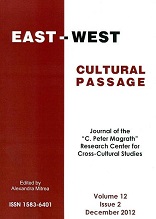Perspectives on English as a Lingua Franca in the European Union
Perspectives on English as a Lingua Franca in the European Union
Author(s): Anca-Luminita IancuSubject(s): Language and Literature Studies
Published by: Editura Universitatii LUCIAN BLAGA din Sibiu
Keywords: English as a lingua franca (ELF); non-native speakers (NNES) in the European Union; language of communication; national and linguistic identity; multilingualism
Summary/Abstract: The English as a lingua franca (ELF) movement is a part of the larger World Englishes movement and looks primarily at how English functions as a means of communication among non-native speakers. In recent years, English has become an important means of communication in the European Union in administrative institutions, in the academy, and in the lives of regular European citizens. In Europe, discussions around ELF include such issues as nationalism and linguistic identity, multilingualism, and the status of English as a language of communication not of identification for European citizens. Therefore, the main purpose of this essay is to examine various linguistic, cultural, political, and economic factors that might influence the complex process of implementing a lingua franca in the European environment. In order to accomplish this goal, it is important to contextualize ELF within the wider debates about English as an international language, to examine the theoretical and empirical academic research that has been done in order to conceptualize and define ELF as a legitimate language variety, and to analyze the current EU language policies.
Journal: East-West Cultural Passage
- Issue Year: 12/2012
- Issue No: 2
- Page Range: 84-105
- Page Count: 22
- Language: English
- Content File-PDF

